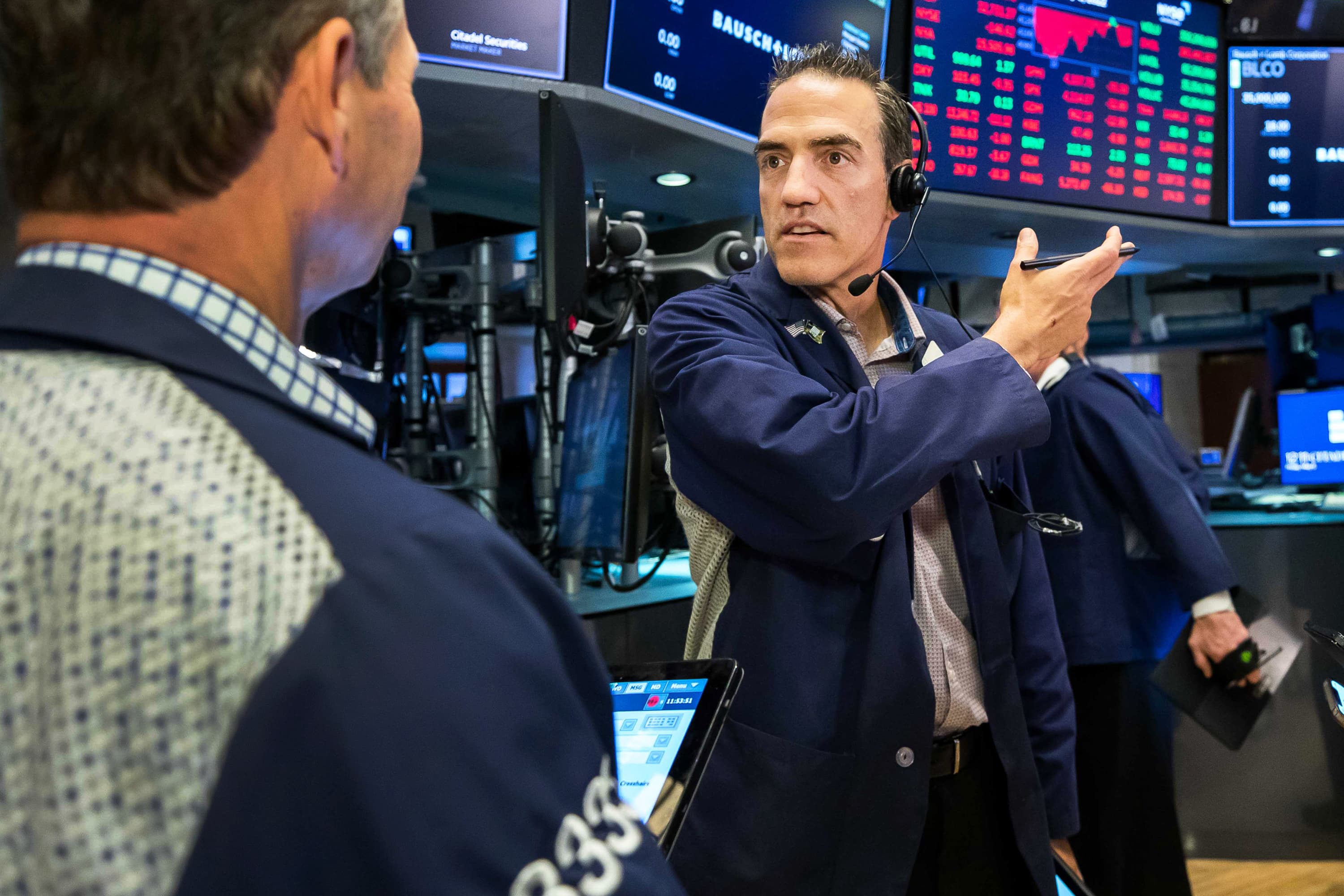
Stocks fell sharply early Monday, as U.S. rates continued to rise and traders struggled to find their footing after big market swings last week.
The Dow Jones Industrial Average dropped 430 points, or 1.5%. The S&P 500 fell 1.7%, while the Nasdaq Composite lost 2.1%.
The benchmark 10-year Treasury note yield hit its highest level since late 2018 on Monday. It was last trading at 3.185%.
Rising rates continued to put pressure on technology names such as Meta Platforms and Alphabet, which fell more 4.3% and 1.7%, respectively. Amazon and Apple were all down more than 1%, while Tesla and Nvidia dipped 3.3% and 4.3%, respectively.
The combination of high rates and a potential recession as inflation surges also hit other areas of the market. Consumer stocks like Nike and Home Depot suffered along with industrials such as Caterpillar and Deere. Bank stocks also came under pressure with Bank of America falling more than 1%.
Meanwhile, energy bellwethers including Chevron fell 2.8% as U.S. oil futures slid more than 2% to $107.14 per barrel.
“We expect markets to remain volatile, with risks skewed to the downside as stagflation risks continue to increase,” wrote Barclays’ Maneesh Deshpande. “While we cannot discount sharp bear market rallies, we think upside is limited.”
Wall Street is coming off a wild week, as investors weighed the prospects of rising interest rates against the potential of slower economic growth.
Last week, the Nasdaq Composite lost 1.54%, while the S&P 500 and Dow dropped 0.21% and 0.24%, respectively. It was the sixth straight losing week for the Dow, and the fifth straight for the other two major indexes.
While the cumulative moves for the week were not out of the ordinary, some of the day-to-day swings were eye-popping. The Dow had its best day since 2020 on Wednesday, but then erased all those gains and more on Thursday.
The short-lived Wednesday rally came after Federal Reserve Chair Jerome Powell said the central bank was not considering a 75-basis-point rate hike at upcoming meetings. Stocks and bonds rallied following that comment but reversed course on Thursday.
Billionaire hedge fund manager David Tepper told CNBC’s Scott Wapner on Friday that Powell’s statement was an “unforced error” that contributed to market volatility.
“Our thinking is that stocks are likely to continue lower because we have not yet seen enough technical evidence to suggest a bottom process has started,” wrote JC O’Hara of MKM Partners. “Technical indicators are not oversold enough. The volume profile has shown little if any signs of real capitulation.”
First-quarter earnings season is slowing down, but there are several notable reports before the opening bell on Monday, including Palantir and vaccine-makers BioNTech and Novavax.
In other corporate news, Ford was looking to sell 8 million shares in Rivian Automotive over the weekend, sources told CNBC’s David Faber.
Investors will also be keeping an eye on the war in Ukraine. U.S. first lady Jill Biden made a surprise visit to the country on Sunday. The U.S. and Group of Seven countries announced that they would increase short-term financial support for Ukraine as the war with Russia nears the three-month mark.
